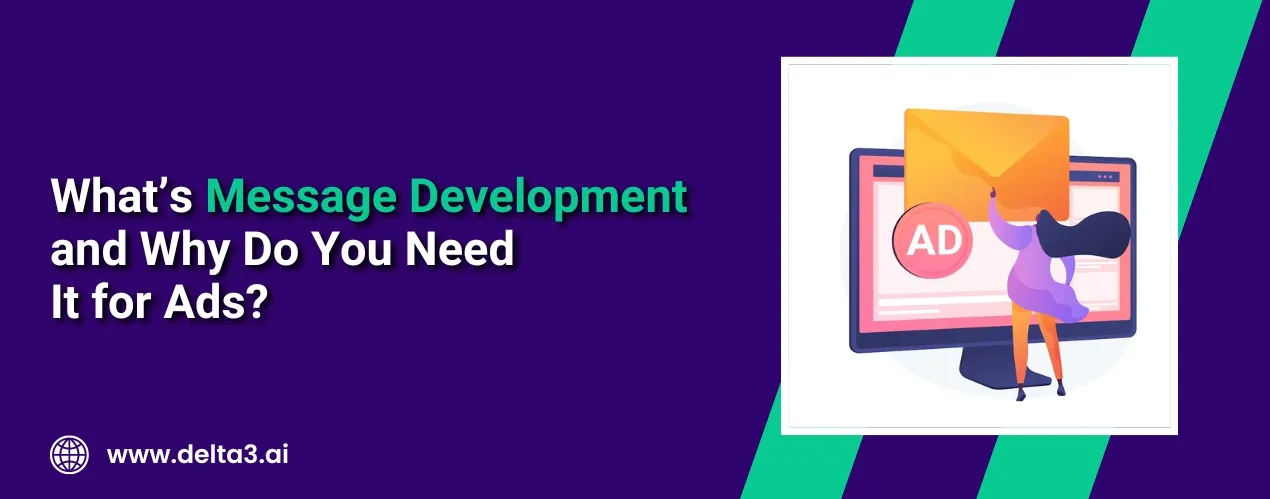Introduction
This is the process of creating messages that are strong, easily remembered, and fit the strategic plans and the receivers. In the context of Message Development, it means creating messages that any investor, analyst, or other stakeholder can discover. Such messages are used to convey various information in relation to the financial revenue status of a company. Business strategies and policies, and the management of corporations.
That is why organizing communication and developing messages necessarily presupposes the ability to meet the target audience’s needs and expectations. Using clear and persuasive language, as well as maintaining a unified concept in all channels of communication. It entails a lot of planning and an element of innovation. As well as a constant assessment of the messages to guarantee that they still carry the intended impact.
Benefits of Message Development
- Enhanced Communication: Good messages enable improved communication with investors because they are clearly understood. Leading to a better understanding of the company’s value proposition and strategic direction.
- Building Trust: This form of shareholder communication enables organizations to foster durable investors’ relations. Given that investors will always believe in the credibility of the messages transmitted if such messages are unadulterated by bias.
- Improved Investor Engagement: People stay connected and involved in what the companies are doing. Which helps them retain investors, and in this way, people are satisfied.
- Consistency: Most channels present the same information to all the stakeholders. Avoiding confusion and enhancing the company’s brand identity.
- Regulatory Compliance: The correct structure of the messages guarantees compliance with the existing rules and regulations. Reducing the possibility of mistakes and eventual legal complications.
Key Objectives for IR Advertising Messages
- Transparency and Clarity: Hence, giving outright information on the financial performance. Strategic plan and management, and corporate governance.
- Building Investor Confidence: Focusing on the fact that investors decide to invest in a company. This is where basically all the positive aspects of the firm, achievements, and potential development should be emphasized to create confidence in current and potential investors.
- Engaging Content: Producing content that focuses on the company attracts the investor’s attention and makes them interested in acquiring more information about it.
- Timeliness: To make sure messages will reach the recipients on time and that the content of the messages is appropriate for the existing conditions on the buy side market and for many other events taking place in the company.
- Compliance: Complying with all rules and regulations of the communications to make them accurate and fair.
How to Develop an Advertising Message for Investor Relations?
Understand the target audience
- Identify the Audience: Determine who the primary and secondary audiences are, such as current investors, potential investors, analysts, and the media.
Craft the message
- Strong Headline: Create an appropriate headline that would grab the reader’s attention and still convey the main idea of the article.
Choose the right channels
- Electronic media: Use the established website, specific social accounts, and e-mail to disseminate information to professional users interested in developments in the field of IT.
Ensure compliance and ethics
- Regulatory Adherence: The message must obey all related laws and rules to guarantee that it complies with the established rules.
Evaluate and improve
- Measure Effectiveness: Measures the effectiveness of the message, KPI through the engagement rate, feedback, as well as the change in its stock prices alerts.
Pros and cons of message development
Pros:
- Targeted Communication: This is the main reason why it is argued that messages that are more tailored to the target are far more effective.
- Increased Trust: The improvement of the transparency and credibility of all messages to investors and other people is very useful.
- Increased Engagement: Interest maintenance creates attention. Resulting in higher investor retention rates.
- Regulatory Compliance: They also highlight that proper message development helps avoid legal implications by following regulatory guidelines.
Cons:
- Time-consuming: It takes much time and energy to create the necessary messages for the audience. Including the research and the creation and reviewing processes.
- Cost: This is a particularly costly affair, especially for growing firms, which might. Find it hard to afford the cost of engaging a professional firm to help develop the message.
- Risk of Miscommunication: If not well developed, the messages result in mistakes and may even be detrimental to the company.
- Overload of Information: When using more information than necessary. The audience disengages; hence, this should be avoided throughout the advertising process.
Conclusion
The generation of advertising messages is crucial for investor relations management as it relates to the development of trust and interaction with investors, as well as the formation of a positive image of the company. When identifying the target population, composing messages, including the brand image, selecting the proper mode of delivery, and meeting legal requirements, great communication can be achieved with target investors and stakeholders. Although the process is lengthy and expensive, the advantages definitely increase the disadvantages, making it a worthy investment for any organization that seeks to improve its IR activity. In the highly volatile financial industry, learning and growth should be constant to improve the communication channels in the field.
FAQs
1. What is an advertising message?
An advertising message is a logical message intended to persuade a specific action, such as registration, purchase, or reservation, to be taken by the target audience.
2. What is the process of message development?
Identifying your target audience, understanding their needs, preferences, challenges, and motivations, and defining the purpose and preferred outcomes for each communication situation are important for powerful message development.
3. What is a message system?
A messaging system facilitates data transfer between applications, allowing them to concentrate on data transmission and sharing without becoming by it.

